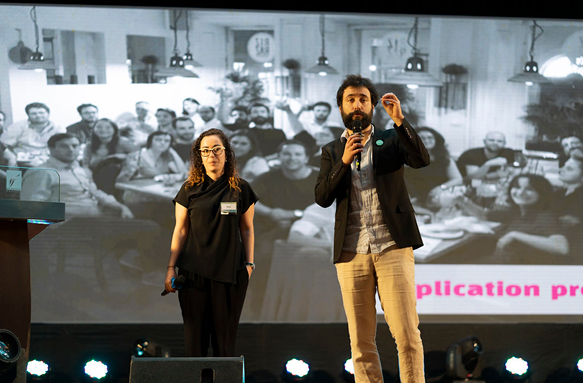
What does cooperative identity mean and how is it relevant today? We talked to Martin Lowery, chair of the ICA Identity Committee, to explore how embracing the cooperative identity and values can help to tackle some of today’s greatest issues. Dr Lowery has been involved in the movement for over 30 years and serves as the Chair of the National Cooperative Bank (NCB) and Executive Vice President, Emeritus, of the National Rural Electric Cooperative Association (NRECA).
You’ve been in the cooperative movement for a long time. What does the cooperative identity mean to you?
Just as every human being has an identity, a self-identity, cooperative enterprises do as well. Cooperatives are people driven, or member driven, and as a member, you actually own it and can make a difference in terms of the direction of the business and the services that are provided. Because it is an ownership model, and people centric.
Do you think the cooperative identity can help us solve some of the global issues such as the 2020 pandemic?
I think that there are a number of aspects of the pandemic that make the cooperative enterprise approach much more important to consider. If you look at the values within the Statement on the Cooperative Identity, particularly those of self-help and self-responsibility, a key point that we’re learning from this horrible situation we face globally is that we are all about self-help and self-responsibility, not only in taking care of ourselves, but also the solutions such as the social distance guidelines that are so necessary to minimise transmission of the virus. Cooperative values sit very well there: self-help, self-responsibility, democracy, equality, equity and solidarity. Think about those in relationship to getting past the pandemic and beginning to think what a post-pandemic world will look like. Especially with digital platforms being so critical to our ability to communicate with one another.
Why are the cooperative values so important?
They are unique to cooperatives. When we add the ethical values of honesty, openness, caring for others, and social responsibility, those are values that can be shared by everyone on the globe and should be, but the cooperative values themselves are unique to the cooperative enterprise, and actually define our operating system. The values literally drive the principles that guide us in terms of governance and management and membership involvement and engagement in the cooperative
Why do you think the cooperative enterprise works for the future?
Why is it going to be so relevant to how we solve some of the global issues that we have today?
I believe that cooperatives offer the most effective way to create local action that is sustainable for the quality of life of people everywhere. “Think globally, act locally” is more important to understand today more than ever. Realising that local action is the way we solve problems in the world. We don’t solve them by simply setting policy at the national or international level. It’s only through the actions of human beings that things can change for the better.
What has been your experience with cooperators you’ve met around the world?
My experience is that there’s something unique about people who are attracted to the cooperative enterprise, and that doesn’t show in any sort of obvious way; it shows more in the subtlety of the relationships. There’s a sense of wanting to collaborate, a sense of kindness, a sense of caring for one another as one of the ethical values shows. And I find that all over the world. Any place I’ve gone, where you’re working with cooperators, there’s a commonality there, a commonality of humanity, of a sense of belonging and caring for one another that one doesn’t always find in society.
What do you hope to see happen at the 33rd World Cooperative Congress in 2021?
What I would hope to see out of the Congress is a real, strong embrace of the Statement on the Cooperative Identity, not from a philosophical point of view but from a very practical point of view. What does it mean to me as a cooperator, what does it mean to my organisation? What does it mean to the cooperatives in my country, that we fully embrace the principles and the values and the unique definition of what we are as a cooperative to achieve that? We hope to have very exciting keynote speakers and panel discussions, such that the participants in the Congress will leave with extra plans, very specific ideas as to how to implement what they’ve been hearing back home. And I hope that the way we’re constructing this will allow for maximum participation by the attendees, so that they feel that they have been actively involved in the process, discussions and ideas that are generated out of the Congress.

